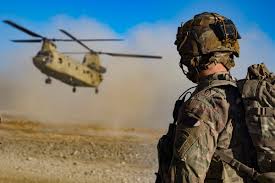
Breaking News
 WARNING: If You Are Holding Silvers, You Need To Hear This BEFORE TUESDAY! #silvercrisis
WARNING: If You Are Holding Silvers, You Need To Hear This BEFORE TUESDAY! #silvercrisis
 More Than 1 Million Bots Have Joined A New AI-Only Social Network
More Than 1 Million Bots Have Joined A New AI-Only Social Network
 AI agents have created their own social platform and indecipherable languages...
AI agents have created their own social platform and indecipherable languages...
 The Pentagon Failed Its Audit Again. You Should Be Alarmed.
The Pentagon Failed Its Audit Again. You Should Be Alarmed.
Top Tech News
 Critical Linux Warning: 800,000 Devices Are EXPOSED
Critical Linux Warning: 800,000 Devices Are EXPOSED
 'Brave New World': IVF Company's Eugenics Tool Lets Couples Pick 'Best' Baby, Di
'Brave New World': IVF Company's Eugenics Tool Lets Couples Pick 'Best' Baby, Di
 The smartphone just fired a warning shot at the camera industry.
The smartphone just fired a warning shot at the camera industry.
 A revolutionary breakthrough in dental science is changing how we fight tooth decay
A revolutionary breakthrough in dental science is changing how we fight tooth decay
 Docan Energy "Panda": 32kWh for $2,530!
Docan Energy "Panda": 32kWh for $2,530!
 Rugged phone with multi-day battery life doubles as a 1080p projector
Rugged phone with multi-day battery life doubles as a 1080p projector
 4 Sisters Invent Electric Tractor with Mom and Dad and it's Selling in 5 Countries
4 Sisters Invent Electric Tractor with Mom and Dad and it's Selling in 5 Countries
 Lab–grown LIFE takes a major step forward – as scientists use AI to create a virus never seen be
Lab–grown LIFE takes a major step forward – as scientists use AI to create a virus never seen be
 New Electric 'Donut Motor' Makes 856 HP but Weighs Just 88 Pounds
New Electric 'Donut Motor' Makes 856 HP but Weighs Just 88 Pounds
 Donut Lab Says It Cracked Solid-State Batteries. Experts Have Questions.
Donut Lab Says It Cracked Solid-State Batteries. Experts Have Questions.
Why America's longest war has lasted so long

Significant hurdles still have to be overcome, involving among other things the Taliban having to meet a vague standard of reducing, though not ceasing, their military operations. But a conclusion to direct American involvement in the Afghan war does seem closer than at any previous time in the last 18 years.
Expect many commentaries in the weeks ahead about what went well and what went poorly — especially poorly — in the Afghanistan war. There will be hindsight-laden appraisals of tactics and strategy and of such things as troop surges said to have started too late or ended too soon. Most of the commentary probably will miss the most fundamental aspects of America's experience in Afghanistan — what most deserves to go into the history books and what is most relevant to avoiding more ultra-long wars in the future. Those fundamentals have less to do with tactics and strategy and more to do with broader perceptual and political patterns in the United States, including the following:
Getting Stuck in Terrorist History
U.S. forces were sent to Afghanistan in 2001 in direct response to the 9/11 terrorist attack, perpetrated by Osama bin Laden's al-Qaida at a time that this group was a guest in the Taliban-controlled portion of Afghanistan. September 11th was such a severe national trauma that it has shaped Americans' thinking about terrorism and counterterrorism ever since. It became a template in which perceptions about terrorism and combating terrorism were formed, even though the template does not always conform to a wider reality.



